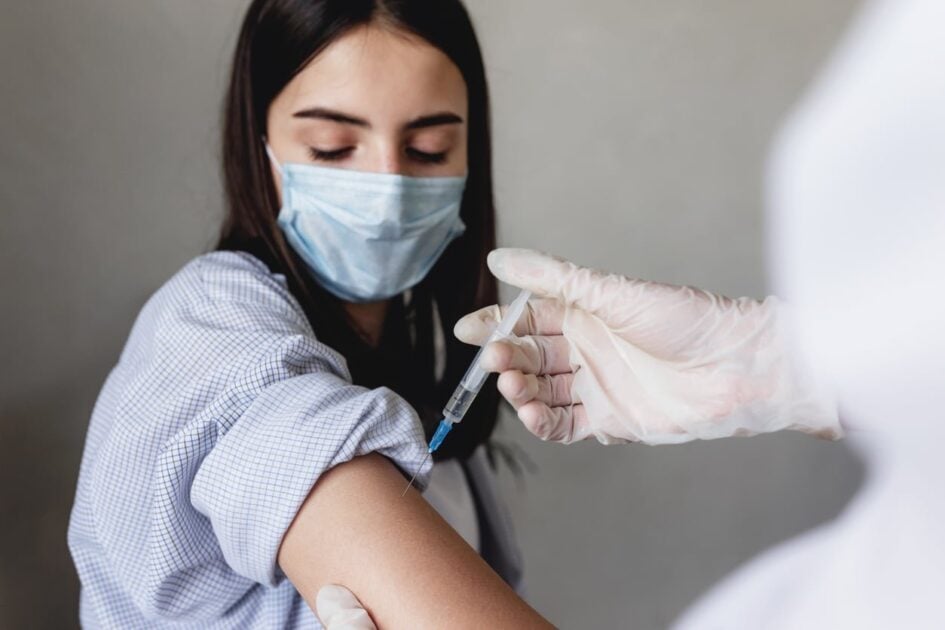Is the HPV vaccine safe?
The safety of the HPV vaccine has been studied for over 16 years.

The HPV vaccine protects against the HPV virus, which can cause cancer and genital warts. The HPV vaccine currently used in Ireland is called Gardasil 9. The HPV vaccine is safe and the safety of the vaccine has been studied for over 16 years. Over 100 million people have been fully vaccinated with Gardasil worldwide. This includes over 550,000 people in Ireland.
How do we know the HPV vaccine is safe?
The HPV vaccine is safe. The safety of the HPV vaccine has been studied for over 16 years.
No country has raised concerns about the safety of the HPV vaccine. There is no scientific evidence in Ireland or in any other country that the HPV vaccine causes any long-term medical condition.
Vaccines are strictly monitored and reviewed regularly by international bodies including the:
- World Health Organization
- European Medicines Agency
- Centers for Disease Control and Prevention in the USA
Who should not get the HPV vaccine?
There are very few people who cannot receive the HPV vaccine. You should not be vaccinated if you have had an anaphylactic (serious allergic) reaction to a previous dose of the HPV vaccine or any of the ingredients of the HPV vaccine.
The ingredients of the vaccine include:
- Sodium chloride
- L-histidine,
- Polysorbate 80
- Sodium borate
The full list of ingredients in the HPV vaccine ( Gardasil 9) is in the Summary of Product Characteristics for the vaccine which is available from the European Medicines Agency website.
If you are concerned that you are allergic to any of these ingredients, you can speak to your GP or a medical professional to see if the vaccine is suitable for you. The HPV vaccine is also not suitable to be given during pregnancy.
Are there HPV vaccine side effects?
All international bodies have continually reported that the vaccines used in Ireland have no long-term side effects. However, some people may experience short-term side effects.
Short-term side effects of the HPV vaccine
Most people have no problems after the vaccine. The HPV vaccine has many of the same, mild side effects as other vaccines. Some people have an area of soreness, swelling and redness in their arm where the injection was given. This usually passes after a day or two.
Some people may get a headache, feel sick in their tummy or have a slight temperature. If this happens, paracetamol or ibuprofen will help. Occasionally, some people may feel unwell and faint after getting their injection. To prevent this, when someone gets the vaccine they are asked to sit down and rest for 15 minutes after the vaccination.
Severe allergic reactions to vaccines are very rare. School vaccination teams and staff at vaccination centres are trained to treat any severe allergic reaction. If you are worried, talk to a member of the school team or your GP.
Is the HPV vaccine effective?
The HPV vaccine now protects against the types of HPV that cause 9 out of 10 cervical cancers.
A recent study from England showed that vaccination with the HPV vaccine is associated with a big reduction in the risk of cervical cancer, especially in people who got the HPV vaccine at 12 to 13 years of age.
The HPV vaccine has greatly reduced cases of pre-cancers of the cervix in many countries including Australia, Sweden, the US and the UK. In countries where the HPV vaccine is used, the number of cases of genital warts has decreased dramatically.
Since the HPV vaccine was licensed in 2006, research has been done all over the world. It shows that the vaccine is safe and prevents cancer. The World Health Organization (WHO) considers the HPV vaccine to be extremely safe.
HPV screening in Ireland
HPV screening for women in Ireland
A cervical screening test is a free test to check the health of your cervix. The cervix is the opening to your womb from your vagina. It’s not a test for cancer, it’s a test to see if you are at risk of developing cancer. Anyone with a cervix can access this screening for free over the age of 25. This includes non-binary, trans and intersex people.
Cervical screening may check for:
- Human papillomavirus (HPV) – some types of HPV can lead to cell changes in your cervix and cancer
- Abnormal cell changes in your cervix – left untreated, these could turn into cancer
Even if you have had the HPV vaccine, you should have your cervical screening test (smear test) each time it’s due. This is because the HPV vaccine doesn’t give complete protection against cervical cancer.
HPV screening for men in Ireland
The screening for HPV is currently only available for those with a cervix. For men and other people with a penis, the HPV vaccine is your best chance at protecting yourself against genital warts and HPV-related cancers. Book a HPV vaccine appointment.
Who can get the HPV vaccine in Ireland?
The HPV vaccine, along with MenACWY and Tdap, is offered to first-year students in secondary school by HSE school vaccination teams.
If you have not already had a HPV vaccine, you can book a free HPV vaccine catch-up appointment until December 2023 if you:
- Are in second to sixth year of secondary school, homeschool or special school
- Have a cervix and are aged 24 or younger
- Have a penis and are aged 21 or younger
If you’re an international student living in Ireland, you can get a free vaccine if you:
- Have a cervix and are aged 24 or younger
- Have a penis and are aged 21 or younger
If you’re a refugee or seeking protection in Ireland, you can get a vaccine if you:
- Have a cervix and are aged 14 to 24
- Have a penis and are aged 14 to 21
Book a HPV vaccine appointment
Need more information, advice or guidance?
We offer information, advice and guidance about the issues that matter to you. Our online Youth Information Chat service is for 16 to 25 year olds and is available Monday to Friday, 4pm to 8pm (excluding Bank Holidays).






